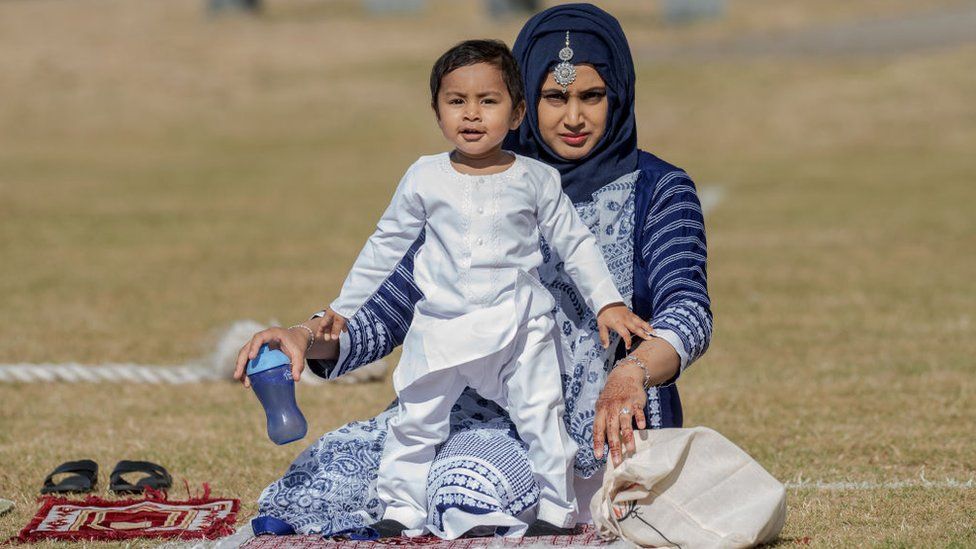Eid al-Adha will be celebrated by millions of Muslims in the UK and throughout the world.
Two months later, on Eid al-Fitr, one of the holiest days in the Islamic calendar, Ramadan, one of the most sacred months, comes to an end.
Ramadan and both Eids have yearly changes because Islamic holidays are based on the lunar calendar.
Eid refers to a feast or festival. Muslim communities worldwide observe Eid al-Fitr and Eid al-Adha annually.
Eid al-Fitr, which means "the festival of the breaking of the fast," occurs at the conclusion of Ramadan.
It begins with the first new moon sighting, just like Ramadan.
Just over two months after Eid al-Fitr, a four-day celebration known as Eid al-Adha, or the "feast of the sacrifice," is observed.
It commemorates the prophet Ibrahim's readiness to offer his son as a sacrifice at God's command and falls on the final day of the Hajj, an annual pilgrimage by Muslims to Mecca in Saudi Arabia. .
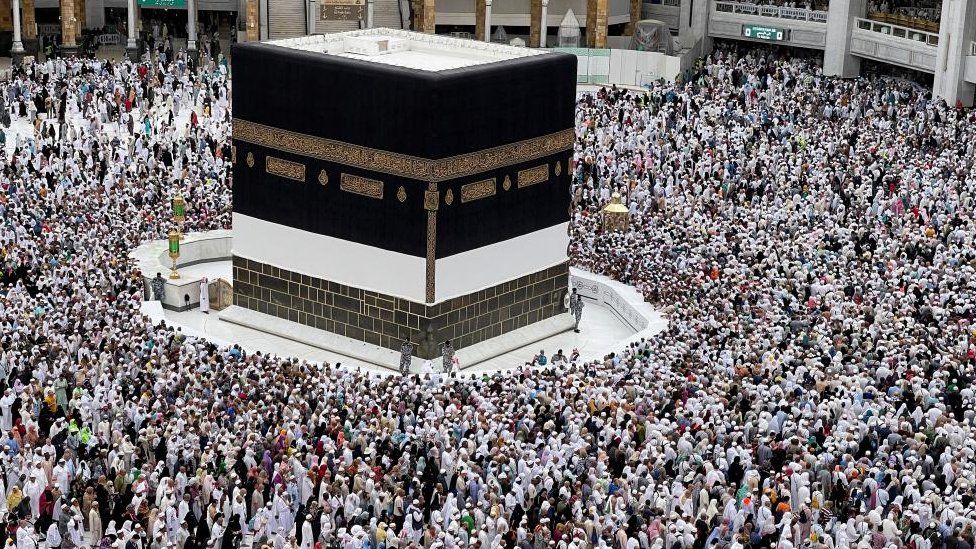
This year, the dates for Eid al-Adha are Monday, July 3 through Wednesday, June 28.
Many Muslims go to their mosque early in the morning for Eid prayers during both holidays.
These are held in the Middle East immediately following the Fajr morning prayer. In the UK, they can happen at any time starting at 07:00.
For Eid, it is customary to dress in new clothes, eat a sweet treat like a date on the way to the mosque, and recite a brief prayer called a takbeer.
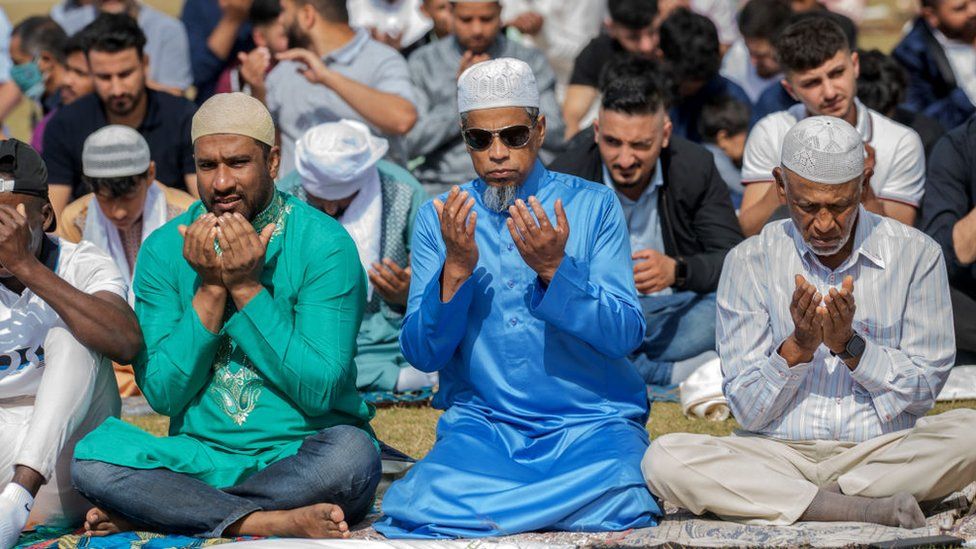
Every Muslim is required to give to charity before the Eid prayers in order to help feed the needy.
Both Eids are observed as public holidays in many nations, and people frequently gather with friends and family to eat substantial meals.
It is also typical for older people to give money to kids and younger relatives.
You can say "Eid Mubarak" to someone to wish them a happy Eid.
The ninth month of the Islamic calendar is known as Ramadan in Arabic. Because of the phases of the moon, it falls on a different day every year.
In 2023, the holy month of Ramadan began on March 22 and ended on April 21.
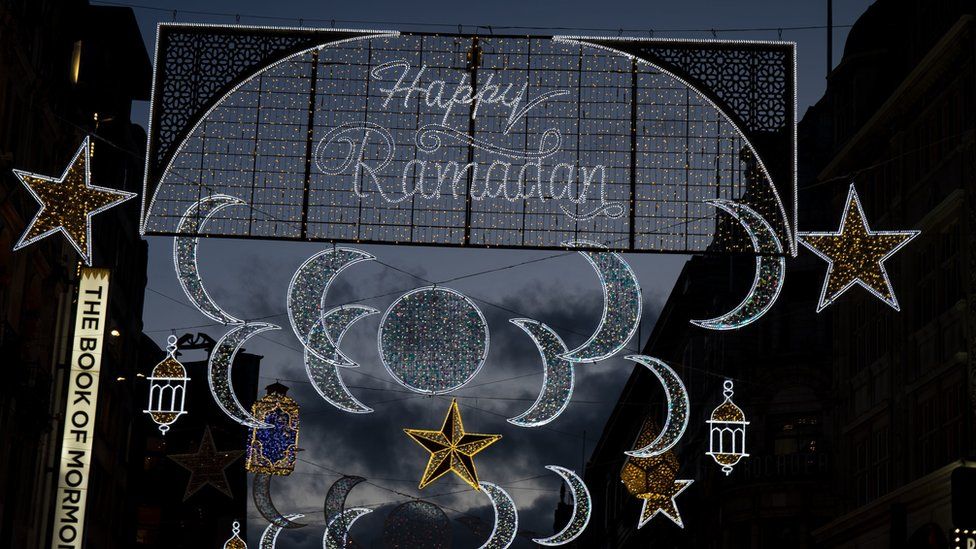
Fasting, which is one of Islam's Five Pillars, is observed during this month, which is regarded as one of the holiest for Muslims.
The other pillars of Islam are faith, prayer, charity, and making the pilgrimage to the holy city of Mecca. According to Muslims, these five principles are obligatory deeds commanded by God.
Muslims hold that the Prophet Muhammad received revelations of some of the first verses of the Islamic holy book, the Qur'an, during the month of Ramadan.
Therefore, there is a greater emphasis on reciting the Qu'ran at this time.
Muslims are also urged to develop their relationship with God, give to charity, and practice patience and kindness.
Some believers also engage in the Ramadan-exclusive Taraweeh, an additional nighttime prayer.
You can wish someone a happy Ramadan by saying "Ramadan Mubarak," which translates to "Blessed Ramadan," or "Ramadan Kareem," which means "Generous Ramadan.".
Suhoor, also known as sehri, is a Muslim term for the early morning meal.
Before breaking their fast for the evening meal, known as iftar or fitoor, after sunset, they refrain from eating or drinking anything, including water.
Only healthy individuals should engage in fasting.
Certain Muslims are exempt:.
- those whose health will be impacted by fasting due to illness or disease.
- even though some start fasting before they reach puberty. Children who have not yet reached puberty.
- women who are breastfeeding and pregnant.
- females who are on their periods.
- travellers.
Following the 12-month lunar calendar is the Islamic calendar.
The ninth month is Ramadan, and the first of the tenth month, Shawwal, is when Eid al-Fitr is observed. The Islamic holiday of Eid al-Adha occurs in Dhu al-Hijjah, the last month of the year.
The new crescent moon signals the beginning of each month, which lasts 29 or 30 days.
The naked eye was used in the past, but technology and telescopes have been used recently.
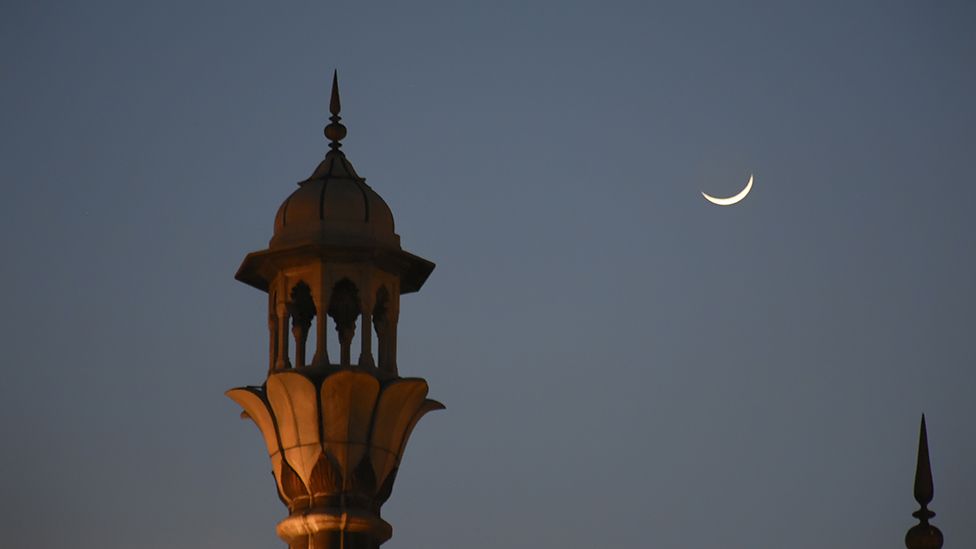
Because there are so many Muslim nations, ranging from Indonesia to Morocco, some Muslims experience the new moon earlier than others.
According to Prof. Muhammad Abdel Haleem of the Centre of Islamic Studies at SOAS in London, Makkah (Mecca, Saudi Arabia), was traditionally the location for moon sightings.
He adds that neighboring nations from the Middle East occasionally claim to have seen the moon on various days.
Compared to the Western calendar, which is based on the sun's cycle, the lunar calendar is about 10 days shorter.
As a result, Ramadan begins approximately 10 days earlier than in the year prior each year and advances throughout the year.

